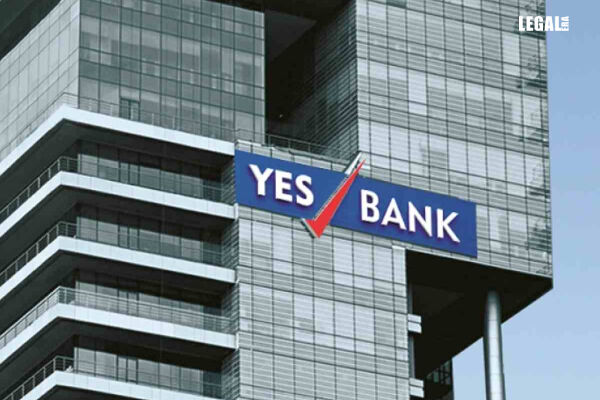
Sumitomo Mitsui’s stake to improve rating: Yes Bank MD Prashant Kumar
The private bank had been questioned over the extent of non-performing loans in the balance sheet and its inability to raise capital
The Rs.16,000-crore (25 percent stake) by Japanese lender, Sumitomo Mitsui Banking Corporation (SMBC) in Yes Bank, is being seen as a strategic move from an investor of global repute.
Prashant Kumar, Managing Director and Chief Executive of Yes Bank, stated that it would improve the bank’s ability to raise capital, drive business growth through network tie-ups and increase profitability.
He added, “The advantage, in terms of having a strategic investor, enhances the ability to raise capital and the possibility of our rating upgrade.”
Kumar, a career State Bank of India (SBI) executive who helmed the recovery of the private bank in March 2020, said that Yes Bank’s rating had improved to ‘AA-‘ from ‘D’.
Commenting on Yes Bank’s journey over the last five years, Kumar said, “A bank, which was about to close down, has not only survived, but is also doing very well and able to get one of the very large foreign investments.”
An alleged promoter malfeasance, which resulted in the arrest of one of Kumar’s predecessor’s, Rana Kapoor, had led to huge troubles for Yes Bank. It was questioned over the true extent of non-performing loans in the balance sheet, continued losses and an inability to raise capital.
Weeks before the onset of the Covid crisis in March 2020, the Reserve Bank of India’s (RBI’s) rescue mission, led by the SBI, took a 79 percent stake in Yes Bank. At that time, Kumar, the chief financial officer of the country’s largest lender, handled the matter.
He claimed that a rating upgrade, guided by profiles, would help the bank get deposits or liabilities from large corporate, institutional investors and government entities.
While refraining from giving a timeline on when it sees a rating upgrade coming, Kumar said that the bank was in regular touch with rating agencies. SBI is a major shareholder in the bank, with over 10 percent ownership, which restores confidence from a capital raising perspective. Thus, the bank was adequately capitalised.
Responding to the lack of adequate appreciation in the share price, Kumar expressed, “The investors need to have some patience. They have to see where this bank started. You can’t compare with a bank which was not put to that kind of punishment.”
Meanwhile, the stake purchase by SMBC, which picked up 24.2 percent against two board seats, will also open doors for Yes Bank in getting fee-based business from companies that have borrowed from the Japanese lender. It will also serve the smaller businesses forming the supply chain for the borrowing entity.
On what changes from an operational perspective and the business changes in the offing, Kumar, whose term ends in April 2026, retorted, “With SMBC’s involvement, the entire board will sit and see how to increase the business prospects and profitability. But there are no specifics.”
He added that the bank was on track to achieve its stated target of exiting FY 2027 with a return on assets of 1 percent, up from 0.8 percent at present, and which earlier was 0.3 percent. More than loan book growth, which is picking up, the bank would concentrate on profitability. It will also focus on lending in segments that deliver wider net interest margins, like used car finance and affordable loans.
Reacting to the concerns around small business loans, Kumar stated that the bank did not see any reverses on the books. Exuding confidence that it would exit FY 2026 at an NIM of 2.7 percent, he explained that the net interest margins could reach a trough in the ongoing September quarter but would rise from Q3 onwards.